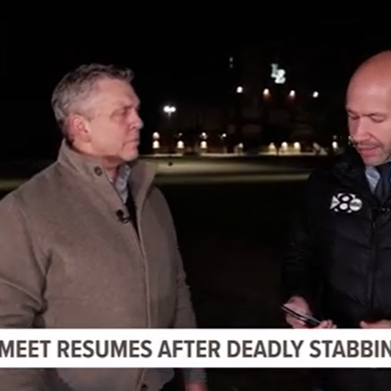
Supporting Teens and the Community After Tragedy
Last week’s tragic event at a track meet in Little Elm continues to weigh heavily on the hearts of many—especially the teens who are now returning to the same stadium to compete. Resuming activities in a place tied to such difficult memories can be emotionally challenging, and it raises the question: how do students mentally prepare to return to that setting?
Dr. Brad Schwall with the Center for Integrative Counseling and Psychology spoke about how schools and communities can support young people in the wake of tragedy. He explained that when a crisis like this occurs, districts often bring in counselors to help students process what happened. These crisis intervention efforts are not only about offering a calming presence, but also about watching for trauma responses that may surface. According to Dr. Schwall, a traumatic event can trigger a wide range of emotions—including memories or unresolved feelings from past experiences.
Counselors often act like emotional triage teams. They listen for signs of distress, identify concerns, and help guide families toward the right support and resources.
As students return to the site of the tragedy, they are likely to experience grief and shock, both from the event itself and from reflecting on the impact it’s had on the victim's family and the community. There's also a disorienting feeling that something so tragic could occur during what’s typically a fun, exciting event. For many, that feeling of hesitation or anxiety about returning to that setting is very real.
Dr. Schwall also emphasized that the emotional impact of such events extends far beyond the athletes. Families, teachers, school staff, and others throughout the community are affected. In times like these, community support becomes vital. Conversations about safety, communication, and conflict resolution are likely to arise—and they should. These are opportunities to come together, to listen, and to care for one another.
The key takeaway, he says, is to follow the lead of the teens themselves. Let them express what they’re feeling. Listen with empathy. Think about the grief being carried not just by the individuals most directly involved, but by the entire community. In doing so, we offer meaningful care and healing.
